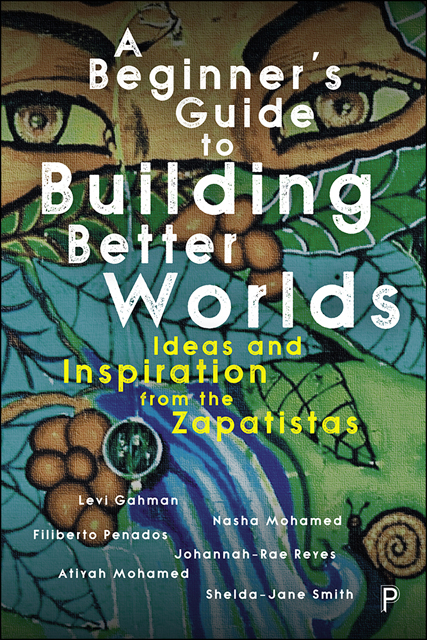Book contents
- Frontmatter
- Dedication
- Contents
- List of figures
- Guilty parties
- 1 Introduction: from liberal bystanding to emancipatory praxis
- 2 A world where many worlds fit
- 3 The coloniser’s model/neoliberal state of the world
- 4 Modernity-coloniality and Indigenous realities
- 5 Dispossession, extractivism and violence
- 6 Critical consciousness and praxis
- 7 Political education and radical pedagogy
- 8 Gender justice and social reproduction
- 9 Health, food sovereignty, solidarity economies
- 10 A battle for the soul of education
- Notes
- References
- Index
8 - Gender justice and social reproduction
Published online by Cambridge University Press: 13 October 2022
- Frontmatter
- Dedication
- Contents
- List of figures
- Guilty parties
- 1 Introduction: from liberal bystanding to emancipatory praxis
- 2 A world where many worlds fit
- 3 The coloniser’s model/neoliberal state of the world
- 4 Modernity-coloniality and Indigenous realities
- 5 Dispossession, extractivism and violence
- 6 Critical consciousness and praxis
- 7 Political education and radical pedagogy
- 8 Gender justice and social reproduction
- 9 Health, food sovereignty, solidarity economies
- 10 A battle for the soul of education
- Notes
- References
- Index
Summary
Or we can agree to struggle together, as different as we are, against the patriarchal capitalist system that is assaulting and murdering us.
Zapatista Women (2018)The (ongoing) colonial state of things
Colonialism penetrates. Land and lives, territories and cultures, as well as bodies and psyches are the target. With the dual end of domination and accumulation as motive, the preferred means of colonisers have been dehumanisation, dispossession, enslavement, exploitation, humiliation, disappearance and death, to name just a few. To be as forthright as possible, the colonial-capitalist order of things has been defined by alienation and annihilation. For over five hundred years, the fanatical contempt, rapacious greed and unadulterated violence of colonialism has been codified and globalised to such a magnitude there is virtually no geography it has not shattered or (dis)ordered. Indeed, the world and modernity as we have come to know and exist in each have been (re)arranged and compartmentalised via colonial worldviews, along with their arbitrary hierarchies and attendant exercises of illegitimate authority and control.
Correspondingly, to speak with accuracy about colonialism is to recognise its inseparability from capitalism and heteropatriarchy, not to mention to distinguish the racist character that defines them as inextricably entangled social structures, cultural institutions and systems of power. Gender and melanin levels taken in vain, patriarchal colonial-capitalism has constructed its ‘Others’ and has set about condemning them as it pleases. It is paramount, here, to recognise that these condemnations and desolations of lives, cultures and histories occur in places. That is, while global in scale and resonance, the machinations and aftermaths of colonialism are unquestionably situated, unique and particular, albeit interconnected. Hence, historicised and geopolitically contextualised analyses are necessary towards confronting, preventing and finding solutions to the ongoing structural violence of colonial, capitalist and patriarchal social orders. And when it comes to seeking and discussing solutions to the global inequalities, human suffering and ecological destruction wrought by colonial-capitalism, a focus on resistance and alternatives, as well as interdependence and relationality, is vital.
History shows us there is nothing tender or humble or playful or joyous about the institutions, discourses, states and economies (that is, relationships) that have been imposed by colonisers, capitalists and the cultural mores established by heteropatriarchy.
- Type
- Chapter
- Information
- A Beginner’s Guide to Building Better WorldsIdeas and Inspiration from the Zapatistas, pp. 106 - 127Publisher: Bristol University PressPrint publication year: 2022

